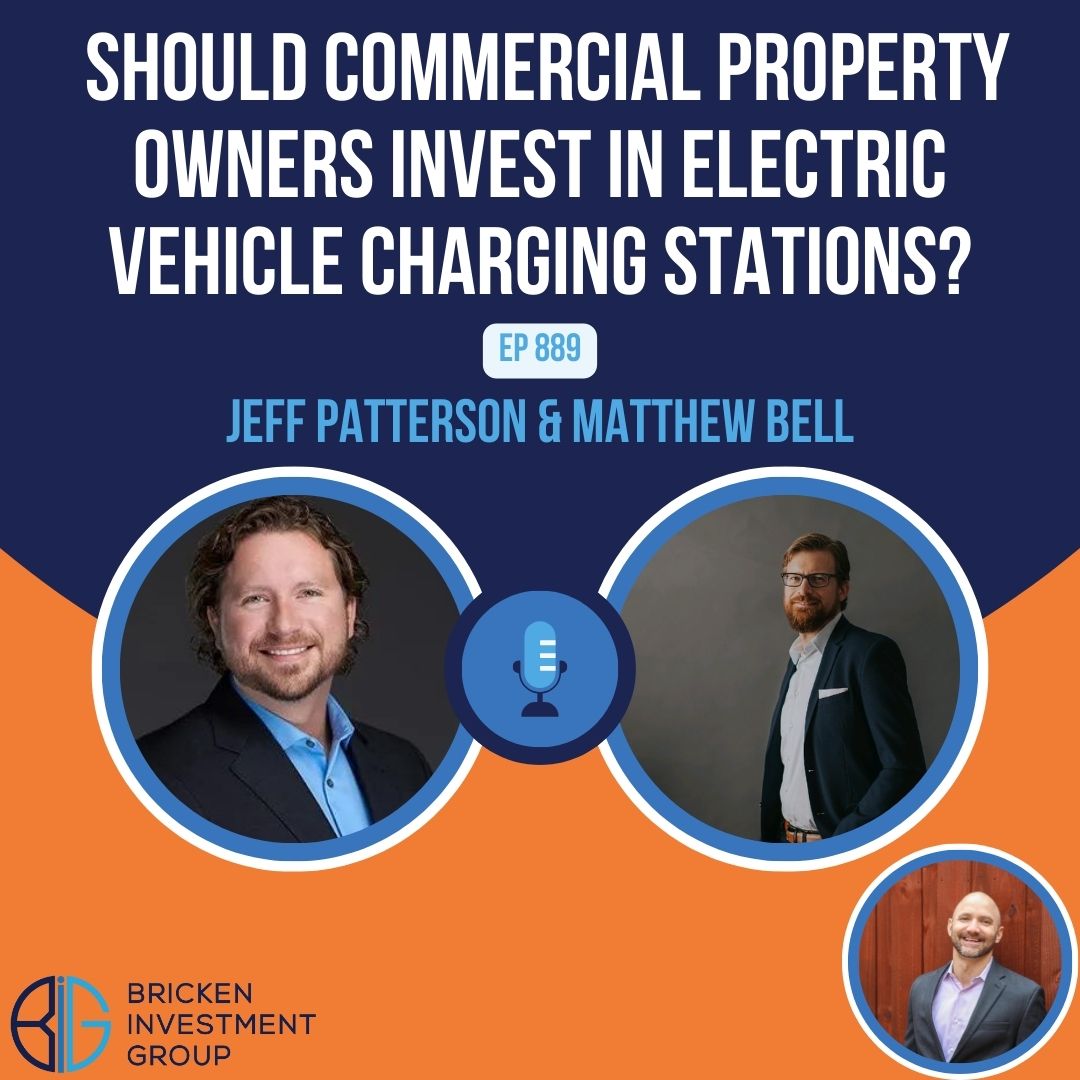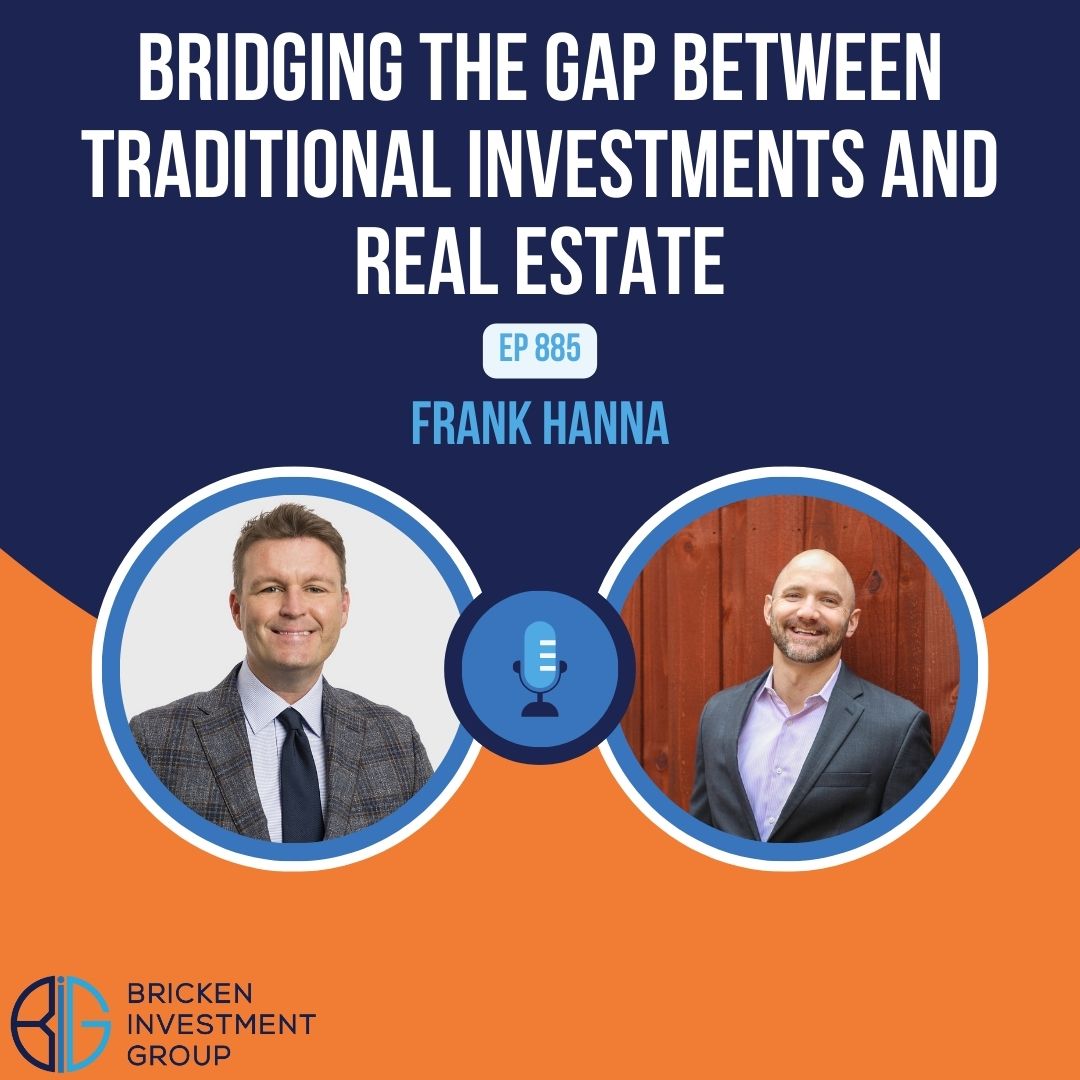Capitalizing on the Surging Demand of RVs
Description
Today's Gust is Ben Spiegel.
Ben is a experienced portfolio manager specializing in niche lower middle market commercial real estate opportunities.
Show summary:
In this episode, Ben Spiegel, founder of Redwood Capital, discusses his transition from investment banking to real estate private equity, focusing on niche lower middle market opportunities. He shares his "asset agnostic" investment philosophy, in-house property management strategy, and his goal to build a premier outdoor hospitality brand. Ben also talks about the benefits of diversifying asset classes, the growth potential in the outdoor hospitality industry, and his success in developing luxury RV resorts, leveraging USDA loans for financing. He offers insights into selecting locations for RV parks and encourages engagement with his firm.
--------------------------------------------------------------
Intro (00:00:00 )
Transition to Real Estate (00:00:57 )
Future Goals (00:02:25 )
Operating Different Asset Classes (00:04:09 )
Bullish on Outdoor Hospitality (00:05:14 )
Luxury Outdoor Hospitality (00:06:51 )
Financing and Development (00:10:51 )
Location Selection (00:18:38 )
--------------------------------------------------------------
Connect with Ben:
Linkedin: https://www.linkedin.com/company/redwoodcapital
Instagram: https://www.instagram.com/redwoodcapitaladv
Web: www.redwoodcapitaladvisors.com
Connect with Sam:
I love helping others place money outside of traditional investments that both diversify a strategy and provide solid predictable returns.
Facebook: https://www.facebook.com/HowtoscaleCRE/
LinkedIn: https://www.linkedin.com/in/samwilsonhowtoscalecre/
Email me → sam@brickeninvestmentgroup.com
SUBSCRIBE and LEAVE A RATING. Listen to How To Scale Commercial Real Estate Investing with Sam Wilson
Apple Podcasts: https://podcasts.apple.com/us/podcast/how-to-scale-commercial-real-estate/id1539979234
Spotify: https://open.spotify.com/show/4m0NWYzSvznEIjRBFtCgEL?si=e10d8e039b99475f
--------------------------------------------------------------
Want to read the full show notes of the episode? Check it out below:
Ben Spiegel (00:00:00 ) - I don't think that it is that difficult to specialize in more than one asset class. And I think that when you when you don't subject yourself to specializing in one asset class, it enables you to really have a much more robust deal pipeline that allows you to source many more opportunities and therefore deploy more capital.
Sam Wilson (00:00:23 ) - Welcome to the how to Scale Commercial Real Estate show. Whether you are an active or passive investor. We'll teach you how to scale your real estate investing business into something big. Ben Spiegel is an experienced portfolio manager that specializes in niche, lower middle market commercial real estate opportunities. Ben, welcome to the show.
Ben Spiegel (00:00:45 ) - Thanks so much for having me.
Sam Wilson (00:00:47 ) - Absolutely. Ben. There are three questions I ask every guest who come to the show in 90s or less. Can you tell me where did you start? Where are you now and how did you get there?
Ben Spiegel (00:00:57 ) - Yeah. So I started on the investment banking side of things at Barclays. I quickly moved to the buy side, working at, uh, several, uh, special situations, hedge funds, uh, investing in, uh, distressed and, uh, stress, special situations, bankruptcies and restructurings.
Ben Spiegel (00:01:16 ) - Uh, I was there for about 4 or 5, six, seven years. And then when I, when I started working at those firms, I was smart enough to start taking half my bonus and buying real estate with that. And after being on the buy side for about 6 or 7 years, I was presented with an opportunity to buy a large non-performing loan, uh, and take it through bankruptcy and, uh, restructure it. And when I did that, I decided to leave the buy side, and that's when I started, uh, Redwood Capital, which is a boutique, uh, real estate private equity syndication firm. Um, so I, I have about 75 million under management, uh, right now, uh, fluctuates up and down. Uh, I invest really. I like to call myself asset agnostic and that I invest in everything from medical offices to, uh, to our to luxury RV resorts to multifamily. I don't really have a preference as long as it has, uh, cash flow and I can understand the drivers of it, I will invest in it.
Ben Spiegel (00:02:25 ) - And, uh, basically, where do I want to be? Uh, I want to be five, ten years from now. I want to have 1500 to 2000 pads, uh, under management or under my ownership, uh, in a private REIT that I'm currently forming right now. Uh, and to be a premier outdoor hospitality brand, uh, similar to a, a marriott or a Hilton, but, uh, of an outdoor hospitality style.
Sam Wilson (00:02:54 ) - Man, that's really cool. I love that you mentioned a lot of different asset classes there. Are you guys coming in just on the capital side on those or you actually operating the deals yourself?
Ben Spiegel (00:03:04 ) - No, we're we're we're we're operators as well. We have in-house property management. And uh, actually I just actually was talking to somebody about this the other day. I think that's really one of the most important and overlooked things in this business. I said that, uh, in real estate, if an asset is managed by a third party, it really will never reach its full potential.
Ben Spiegel (00:03:24 ) - Uh, because coming from the private equity world, incentive is being incentivized and having a sense of ownership is everything. So in every deal I do, I give my property manager internal property a piece of equity. And I also put them on a quarterly, uh, bonus structure, uh, that's tiered based on, uh, profitability of, uh, how the building does in terms of if it's clear, certain NOI hurdles, they get an incrementally higher bonus. And I have found over the years that that had the return on investment for that amount of money has been ten x.
Sam Wilson (00:04:02 ) - How what's that process been like, and how does your team juggle all these different asset classes?
Ben Spiegel (00:04:09 ) - So I guess, um, real estate compared to corporations where you have fluctuations, commodity price fluctuations, it's it's relatively straightforward. I mean, you have your revenue, your expenses. Uh, I mean, uh, there's some obviously variables related to the tenant structure, uh, the longevity of it, but I don't think that it is that difficult to, to specialize in more than one asset class.
Ben Spiegel (00:04:38 ) - And I think that when you when you don't subject yourself to specializing in one asset class, it enables you to really have a much more robust deal pipeline that allows you to source many more opportunities and therefore deploy more capital.
Sam Wilson (00:04:57 ) - Interesting. Okay. Very very cool. And the one thing that one focus of yours and you mentioned this here and kind of what your 5 to 10 year plan is, is that you are incredibly bullish on the outdoor hospitality space. You want to grow that side of your business. Can you give us some insight as to why?
Ben Spiegel (00:05:14 ) - Yeah. So just to kind of give you some quick four facts and a lot of people are really aware of. But right now the average age of an RV owner in the US is 32 years old, right? Last year, our 2022 460,000 new RVs were shipped, but only 17,000 new pads were built. The average age of the existing RV destination is over 40 years old, and 92% of which are owned by single owner Mom and pop that do not have the necessary resources to invest back into their businesses.
Ben Spiegel (00:05:54 ) - To bring the, uh, their destinations up to the level that the new generation of RV owner needs, such as even most. Most don't even offer Wi-Fi or cell service on their on their sites. To kind of give you an idea of how behind the industry is and what really, uh, makes things exciting is Covid just changed everything post-Covid, 60% of uh, uh, permanent office worker or office workers are now permanen
























